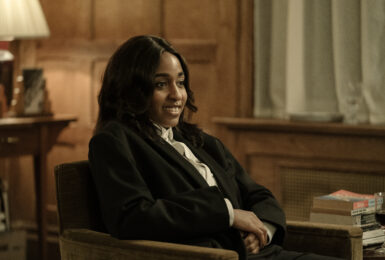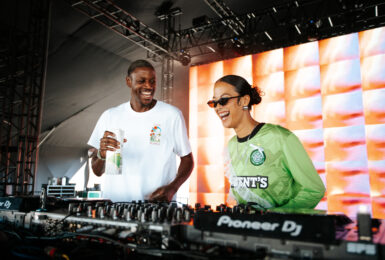Race
how the narrative around white women’s innocence taught me to let them get away with violence
A few days ago, as I rode the train home from work with my boyfriend and we discussed the rough days (weeks, months, years) we had been having, I was taken aback but not surprised when a white woman interjected. “Make sure you keep eating!” she told us with a smile. It wasn’t a funny comment given the seriousness of the conversation and how unwelcome unsolicited advice from strangers is in general, but my partner and I laughed back anyway. She was, it would seem, simply trying to lighten the mood, if not actually attempting to give solutions to our plight.
We tried to return to our conversation, although something about the mood had shifted. The sacred moment of venting we so needed having been stripped from us, we eventually stood in silence until the woman reached her stop. As she left, she touched my partner on the arm and reiterated, “Remember to keep eating!” smiling again, before disappearing into the Harlem world above us, possibly walking on top of our heads past the new Whole Foods opening on 125th St. in just a few months, marking the critical next step of gentrification in the historically Black neighborhood.
Were a white man to have barged his way into a private and serious conversation, give such unsolicited and unhelpful advice, and touch me or my partner without consent, things probably would have gone down very, very differently. I am well aware of the historical violence behind white people ignoring or purposefully overstepping boundaries, physical and otherwise, when it comes to Black people and our bodies. But I have a much harder time challenging this violence when it comes from white women, especially when they claim to be allies, having been taught to presume their innocence from the day I was born.
My mind and body immediately responded to the insidiousness of this woman’s actions by shutting down, but my conscious reaction was to explain her violence away. I interpreted her smile to mean good intentions, as if white women haven’t smiled their way through our murders for centuries. As Ahmad Greene-Hayes argues in “Hillary Clinton and the White Women Who Lynch Us”:
“White women weren’t passively complicit in the racial-sexual terror that pervaded black communities; they were active culprits — hands stained and streaming with black blood.
Kathleen Blee notes in Women of the Klan, ‘In the aftermath of a 1924 Klan riot… Mamie H. Bittner, a thirty-nine-year-old mother of three children and member of the Homestead, Pennsylvania WKKK testified that she, along with thousands of other Klanswomen paraded through town, carrying heavy maple riot clubs [and] that the WKKK was teaching its members to murder and kill in the interest of the Klan.’ Indeed, white women, like their male counterparts, despised Black people and yearned to be violent, even if it meant sacrificing notions of white female virtuosity.”
I have previously written about how white gay men have been the primary enactors of violence toward me because, by virtue of my queerness, I am forced into community with them without having any promise of rectifying their anti-Blackness in return. Similarly, that white women suffer from patriarchy not only means I am supposed to find solidarity with them too, but to also always consider this to mean they are perpetual victims. White women have been positioned as the epitome of vulnerability and virtuosity to the point where they can hardly do any wrong, despite having done so much already.
Before Donald Trump was elected, the bartender at my regular happy hour spot–a white woman–had begun to get comfortable with my coworker and me after eventually learning our names and faces. She too had an annoying habit of interrupting our conversations (this and other experiences being why the actions of the white woman on the train were so unsurprising), but we chalked it up to it being her job. At some point, she decided to happily tell us about her support of Trump, her distaste for “illegal” immigrants (she had recently immigrated the “right way,” she made sure to let us know), and how Black neighborhoods are more dangerous because we don’t know how to take responsibility for our crimes.
Needless to say, I left (without paying), and did not return back to the bar again (until I heard she was fired), but I couldn’t shake the feeling that there was something about the way I had let her get so comfortable that encourages this special brand of terroristic violence that white women enact behind their smiles and fragility. I thought about all the white women who I side step on the sidewalk, who expect and receive seats on crowded trains while Black women and girls stand, constantly ignored, and who teach our kids without loving them, and began to understand the importance of an active resistance and commitment to unlearning white women’s victimhood. The last time a white woman walked through a door I held open without acknowledging my existence, what to speak of my service, was months ago–not because they’ve astonishingly began to acknowledge Black people more often, but because I stopped holding doors. And my life is much better for it.
But, in part because of me, there’s a white woman walking around Harlem violently reminding Black folks to remember to eat their way out of the violence they experience while pushing overpriced Whole Foods stores into their neighborhoods and them out of their homes. No one ever said the road to unlearning would be easy.
*Hari Ziyad is a New York based storyteller and writer for AFROPUNK. They are also the editor-in-chief of RaceBaitR, deputy editor of Black Youth Project, and assistant editor of Vinyl Poetry & Prose. You can follow them on Twitter @hariziyad.
Get The Latest
Signup for the AFROPUNK newsletter





